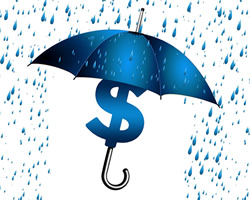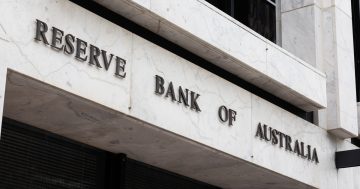Mark Bristow* says just as important as protecting your health is thinking about how to protect your money during the current economic crisis.
 The global coronavirus pandemic is affecting every aspect of Australian life.
The global coronavirus pandemic is affecting every aspect of Australian life.
Schools are closing, office employees are working from home, and supermarkets are struggling to keep up with demand for essentials.
As well as affecting your health, COVID-19 could also affect your finances.
Here are a few things you could do to help protect yourself, your loved ones, and your money.
Check your interest rates
At its March 2020 meeting, the Reserve Bank of Australia (RBA) decided to cut the nation’s cash rate to a new record low of 0.5 per cent.
Many of Australia’s leading banks immediately passed the full rate cut on to their mortgage customers, though some only offered discounted interest rates to new customers.
Some banks also cut the bonus rates on savings accounts, making it harder for everyday Australians to earn interest on their wealth.
Consider checking the interest rates on your mortgage and/or savings account and comparing alternatives to see if there are other options that could better suit your needs.
Find out if you can take a payment holiday
If you or someone you work with catches the virus, you won’t be able to safely go to work, and you may need to self-isolate.
If you don’t have the option to work from home, or if you have a job where sick leave isn’t available, being unable to work and earn income means you may struggle to pay your bills.
Internationally, banks are offering financial relief to COVID-19–affected areas by halting repayments on mortgages and other loans.
Mortgage payments have been suspended across Italy and in the UK, several banks have offered repayment holidays.
Australia’s banks haven’t yet gone quite as far, but have offered financial assistance to customers affected by coronavirus, similarly to the assistance packages offered following the January bushfires.
Following a recent meeting, the Australian Banking Association (ABA) announced that businesses and individuals affected by COVID-19 may be able to apply for assistance from its members, to be assessed on a case-by-case basis, which could include:
- Deferred loan repayments.
- Waived fees and charges.
- Interest-free periods or no interest rate increases.
- Debt consolidation to help make repayments more manageable.
The Commonwealth Bank has outlined specific measures to assist its customers, including offering assistance to customers unfamiliar with digital banking.
The Australian Taxation Office (ATO) has also announced measures to support businesses affected by COVID-19, including deferring selected payments by up to four months.
If you are being affected by coronavirus, and you may not be able to afford your bills, consider contacting your bank (or your landlord, or your gas, electricity, phone or internet provider) to work out a hardship plan before any payments become overdue and you risk a default.
Rethink your travel plans and check your insurance coverage
If you have pre-booked future travel plans or event tickets, it’s important to consider the risk that your trip could be affected by travel restrictions or event cancellations, and the potential impact on your budget if your travel plans need to be called off at the last minute.
While many credit card companies offer complimentary travel insurance if you book flights or accommodation using a credit card, these policies may not cover complications arising from natural disasters, including epidemics and pandemics.
Check your card’s terms and conditions and consider contacting the card provider and the airline/hotel/event organiser to see what can be done about the situation.
Consider going cashless
As well as washing your hands and avoiding touching your face, another hygiene practice to consider while coronavirus is at large is to temporarily give up paying for goods and services with shrapnel or the folding stuff.
Studies have shown that coins and banknotes can serve as disease vectors, changing hands several times a day to spread germs far and wide.
As COVID-19 can spread via respiratory droplets from coughs and sneezes, it’s possible that cash handled by an infected person could carry and spread the virus.
There are reports that currency in parts of China is being cleaned or taken out of circulation to help contain the spread of the virus.
You could consider switching to tap and go payments with your debit or credit card, or using contactless smart pay apps via your smartphone or smart watch.
Just be sure to keep washing your hands and practising good hygiene when handling your cards and devices.
Consider your superannuation choices carefully
With global share markets and investments being affected by coronavirus, there are concerns that this volatility could also affect Australia’s superannuation.
If you’re worried about the safety of your retirement savings, you may be tempted to switch super funds, or even try to access the money early.
However, it’s also important to remember that superannuation is a long-term investment.
If there’s still a long time before you plan to retire, it’s possible that your super fund will eventually recover from any recent losses due to coronavirus volatility, depending on how the assets are invested.
If you’re thinking about switching super funds or consolidating your smaller super accounts, it’s important to compare different fund options.
Look carefully at their past performance (though this does not reliably indicate future performance) and fees, as well as their investment strategy, before making your decision.
* Mark Bristow is a senior financial writer for RateCity.
This article first appeared at www.ratecity.com.au.











